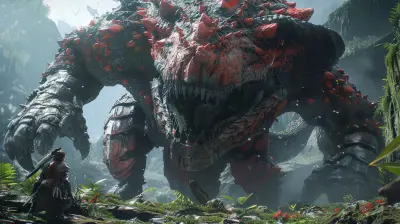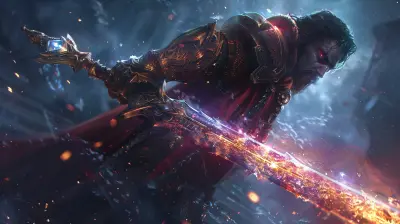Early Access to Full Release: How Player Feedback Shapes the Journey
18 July 2025
Ever jumped into a game in Early Access, watched it evolve over months—or even years—and thought, “Wow, this is totally different from when I first played!” If that sounds familiar, you’re not alone. The gaming world has changed, and Early Access is a big part of that shift. It’s no longer just about developers testing the waters. It’s about player-developer collaboration, evolving gameplay, and crafting games that genuinely reflect community input.
In this article, we're diving deep into how Early Access transitions into full releases, and more importantly, how you—the players—are shaping that journey. Think of it like being part of a band before it gets famous. You’re not just listening to their first songs; you’re helping write them.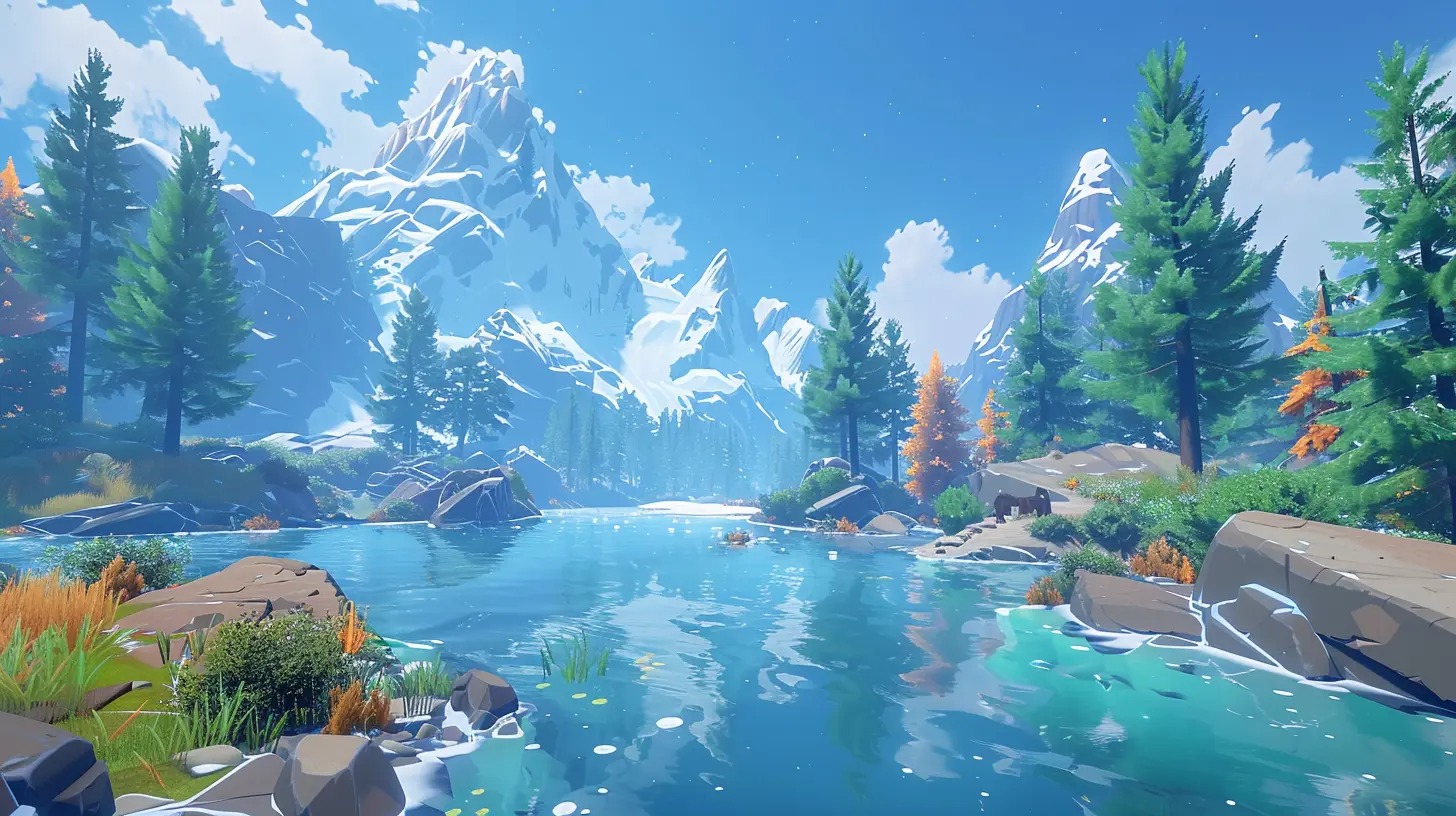
What is Early Access, Anyway?
If you’ve been hanging around Steam or the Epic Games Store, you’ve probably seen the “Early Access” tag slapped onto all kinds of games. But let’s get one thing straight—Early Access is not the same as a finished game. It's more like a work-in-progress sneak peek.Developers release a playable version of the game while it’s still in development. It’s buggy, it’s rough around the edges, and it’s missing features. But despite all that, it's playable. And for many players, that’s part of the charm. You get to experience the game as it evolves and, in many cases, directly influence that evolution.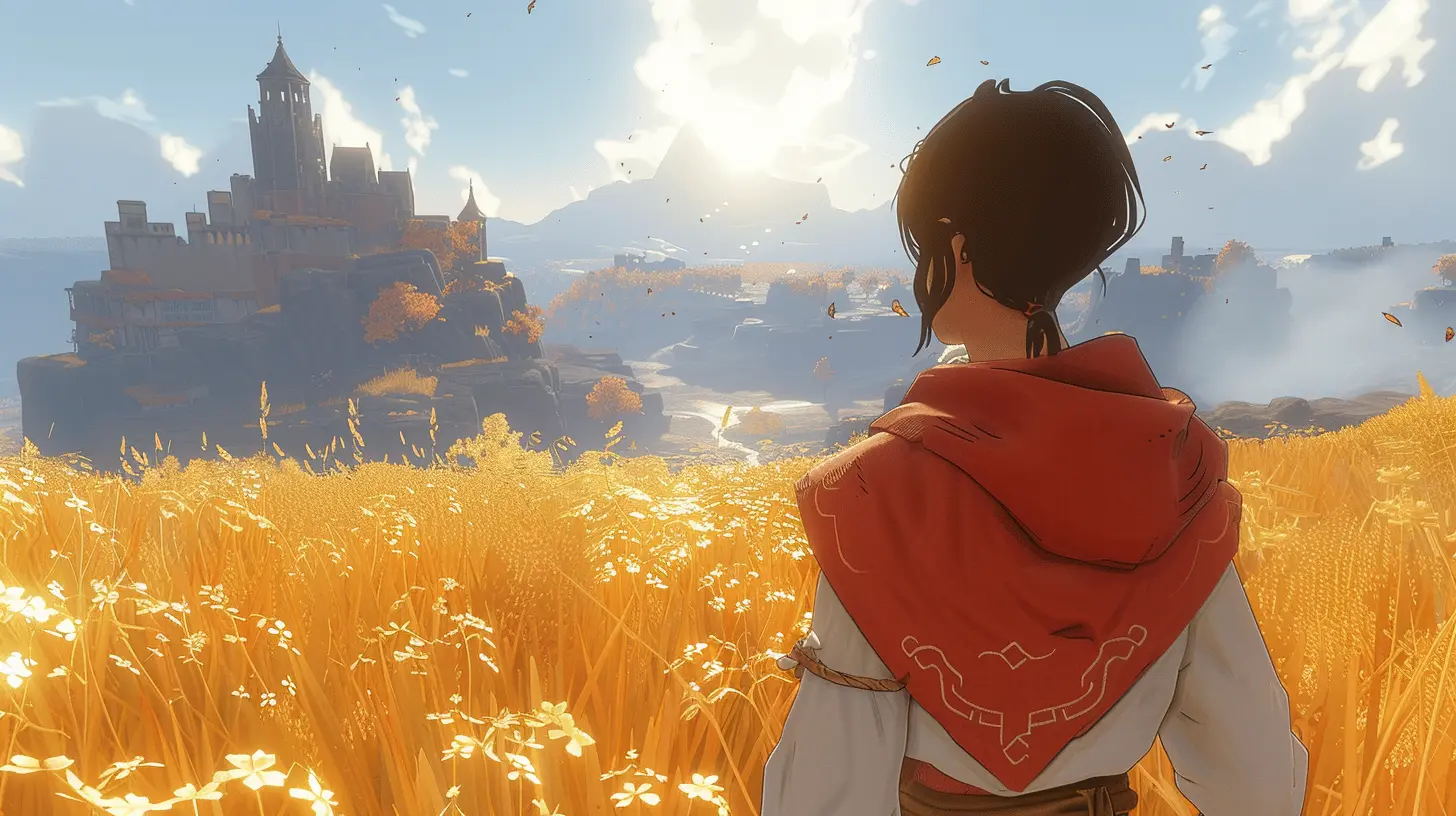
Why Do Developers Choose Early Access?
There’s a bunch of good reasons, and none of them are just about making a quick buck (okay, maybe sometimes). But seriously, Early Access offers:- Funding: Keeping a game studio alive is tough. Early Access helps generate income to keep development going.
- Real Feedback: Playtesters are great, but actual players uncover stuff that devs never even considered.
- Community Building: Loyal fans from day one? Yes, please.
- Market Testing: It helps devs understand what works and what doesn’t before a full launch.
The keyword here is feedback. Developers aren’t just watching the forums; they’re listening. Every bug report, every gameplay suggestion, and every rant on Reddit matters.
The Power of Player Feedback
Let’s be honest: developers don’t always hit the mark on the first try. And that's okay—games are complex beasts! But when you get a community of thousands of players trying things out, issues and ideas bubble up fast.Take games like Hades, Baldur’s Gate 3, or Valheim. All had incredibly successful Early Access phases. Why? Because the devs listened. They didn’t just collect feedback—they acted on it.
Players asked for better UI, more polish, improved combat mechanics, and guess what? Boom—patches dropped, updates followed, and the games improved rapidly. It’s a loop: Players give feedback → Devs update the game → Players test it again → Game gets better.
Imagine if movies could be test-screened by millions of fans who could actually rewrite parts of the script. That’s what Early Access is.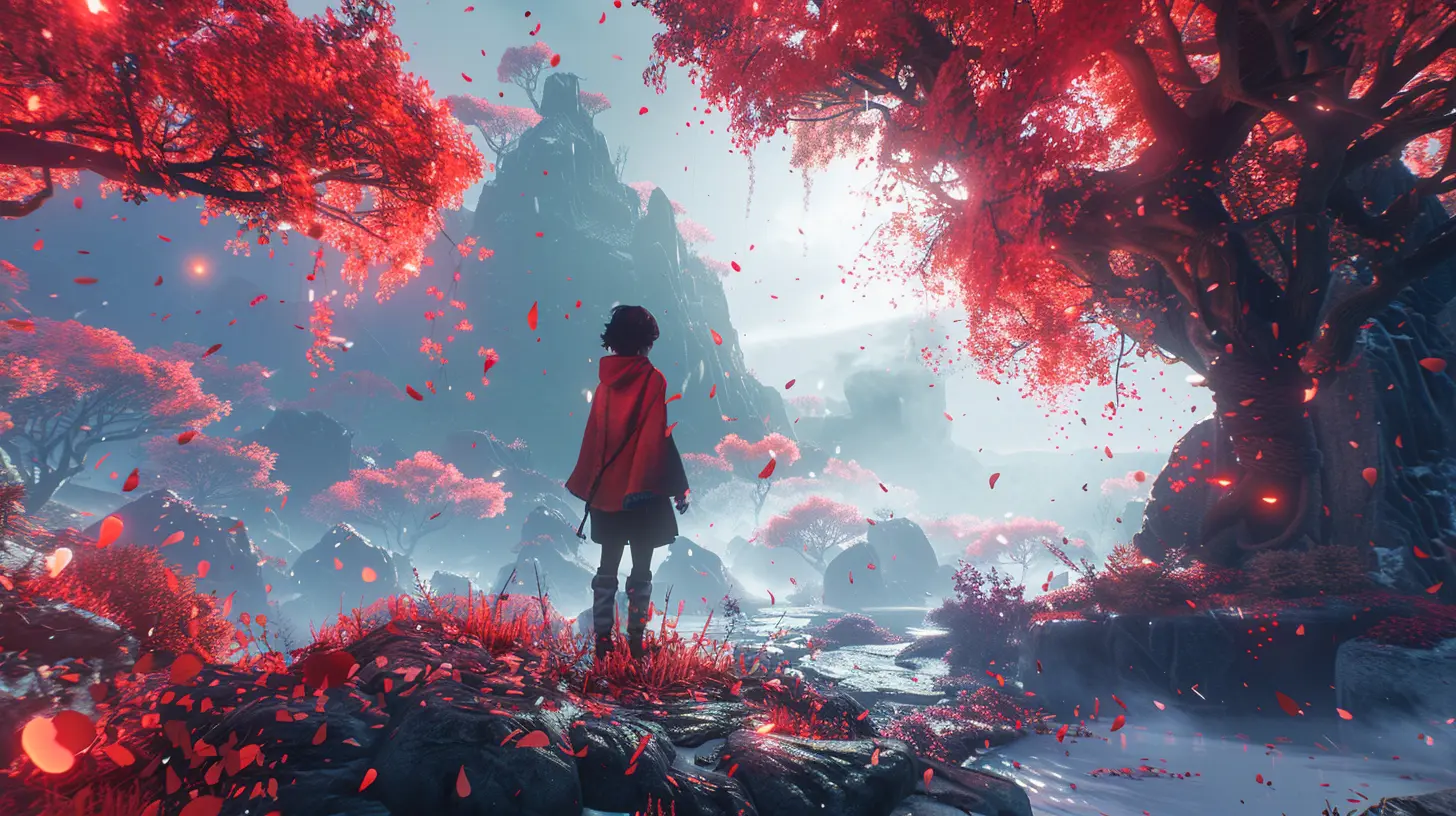
Common User Feedback That Shapes Development
It’s not just about saying, “This is broken.” It goes way beyond that. Here’s the kind of feedback that really shapes a game's journey:1. Balancing Mechanics
Is the boss too easy? Is crafting too grindy? Feedback on difficulty and balance literally changes the way the game feels.2. Quality of Life Improvements
Small tweaks, like inventory sorting or faster menu navigation, make a huge difference. These are the things devs might overlook, but players catch instantly.3. Bug Reports and Technical Issues
Nobody wants a game that crashes to desktop every time you open a chest. Players are essential in tracking bugs and performance issues.4. Content Suggestions
New features? Different modes? Sometimes entire locations or characters are added based on community ideas.5. UI/UX Feedback
Clunky menus and unreadable font sizes—these things add up. The sooner they're fixed, the better the final product.Real Talk: The Double-Edged Sword of Early Access
Okay, let’s pump the brakes for a minute. Early Access isn’t always rainbows and butterflies. In fact, it can be a bit of a gamble.Some games stay in Early Access forever. Others get abandoned. And some just don’t live up to the initial hype, leaving players feeling burned.
As a player, you're basically investing your time (and sometimes your money) into a future promise. And without good communication from devs, it can feel like you’re shouting into the void.
From the dev side, managing feedback from thousands (sometimes millions) of players isn't easy. You can’t swing in every direction, or you end up with a Frankenstein game that pleases no one.
So yeah, it’s a balancing act. But when it works, it really works.
The Magic of Community Development
One of the coolest things about Early Access is how it builds communities. You’re not just a passive consumer anymore; you’re a co-creator.Forums, Discord servers, Reddit threads—these communities become feedback powerhouses. Players share tips, report bugs, and celebrate updates together. It’s all part of the grind and joy.
Ever submitted a bug report and saw it fixed in the next patch? Nothing beats that sense of actually helping build something.
The Transition to Full Release
Now comes the big moment: going from Early Access to full release. This is where the rubber meets the road. Developers polish the game, finalize content, and iron out the last of the bugs.But here’s the kicker—players who’ve been there from the beginning can feel it. They know what changed. They've seen the game rise from a messy demo to a full-blown masterpiece (hopefully).
And you know what else happens? Word of mouth spreads like wildfire. If the veterans say, “This game’s worth it,” new players jump on board. That’s marketing you can’t buy.
Success Stories: Where Feedback Made the Difference
Let’s spotlight a few games that nailed it, thanks to player feedback:🟢 Hades – Supergiant Games
Launch in Early Access with tight combat mechanics, but the story structure evolved heavily through feedback. Players wanted more narrative depth and smoother progression. The devs delivered.🟢 Baldur’s Gate 3 – Larian Studios
Massive AAA game in Early Access? Risky. But the feedback process helped reshape entire character arcs and fix clunky mechanics. Loads of polish over the Early Access period made the full release shine.🟢 Subnautica – Unknown Worlds
Started as a simple underwater exploration game. The community pushed for more survival mechanics, better base building, and clear progression paths. And voilà—it became a genre-defining hit.When It Goes Wrong: Lessons Learned
Let’s not pretend it’s always smooth sailing. Here are a few missteps worth noting:❌ Spacebase DF-9
Developer communication fell apart, updates stopped, and the game launched with a ton of missing features. Players felt left behind.❌ The War Z (later Infestation: Survivor Stories)
Promises were made. Features hyped. Then Early Access turned into a rushed full release with critical bugs still intact. Ouch.Lesson? Commit to the roadmap, communicate clearly, and—most importantly—respect the community.
The Role of Social Media in Feedback Loops
Back in the day, feedback involved sending an email (if anyone even read it). Now? Twitter, TikTok, YouTube, and Discord have become mega platforms for feedback and hype.Game devs now monitor live streams, read tweets, and even jump into comment sections to gather feedback. It’s raw. It’s real-time. And it’s effective.
So next time you tweet “this game needs a better inventory system,” you might actually be talking to the devs.
How Players Can Give Better Feedback
If you want your voice to matter, here’s how to stand out from the noise:- Be clear and specific. Instead of "this sucks," say “the stamina bar depletes too fast in boss fights.”
- Provide context. What were you doing when the bug happened?
- Stay constructive. Devs are people too.
- Join the right channels—forums, Discord, etc., so your input gets seen.
Help improve the games you love, and you'll often find developers are more than willing to listen.
Final Thoughts: You’re Part of the Story
Here’s the truth: games made with Early Access are often better because you helped build them. We’re not just consumers anymore—we’re collaborators, testers, and community builders.So next time you’re playing an Early Access game and spot something off, speak up. Who knows? Maybe your idea will be in the next update, or even set the tone for the full release.
In the end, Early Access is more than a development stage. It's a journey—and the feedback you give today could shape the game’s legacy tomorrow.
all images in this post were generated using AI tools
Category:
Early Access GamesAuthor:

Madeleine McCaffrey
Discussion
rate this article
2 comments
Amber Duke
In the shadows of game development, whispers of player feedback weave a complex tapestry. Each decision shapes not just a game, but an experience—an evolving narrative where every voice matters. What secrets lie hidden in the feedback's echo? Only time will tell.
November 6, 2025 at 4:41 AM

Madeleine McCaffrey
Thank you for your insightful comment! Player feedback truly is a powerful force in shaping game development, turning collective voices into a richer experience for all.
Ezra Warren
Great article! It's fascinating to see how early access not only allows players to experience games before full release but also empowers them to influence development. Player feedback is invaluable in shaping the final product, creating a more engaging and polished gaming experience.
July 21, 2025 at 3:02 PM

Madeleine McCaffrey
Thank you! I completely agree—player feedback during early access is crucial for refining games and enhancing the overall experience. I'm glad you enjoyed the article!

